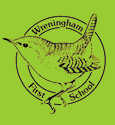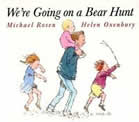The Early Years Foundation Stage
Our fantastic Noah's Ark hall display .
On this page you will find information relating to early years foundation stage at Wreningham.curriculum:
Just click on the contents list to access the information you require.
1. The EYFS Curriculum Statement
2. The Foundation Stage Curriculum
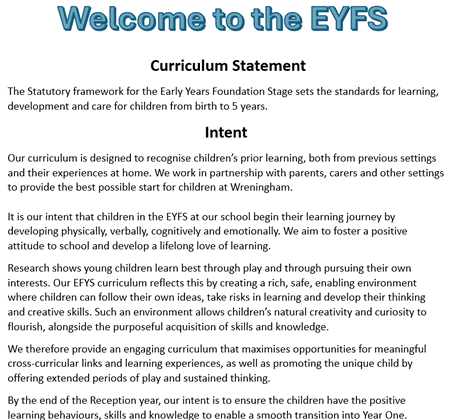
Click here to download a pdf version of our
Foundation Stage Curriculum Statement
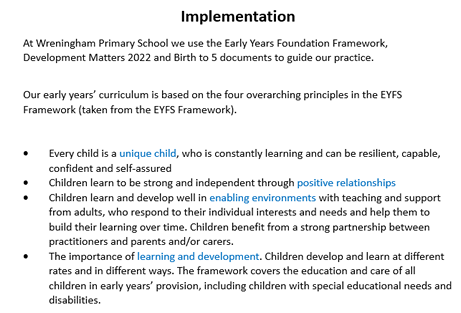
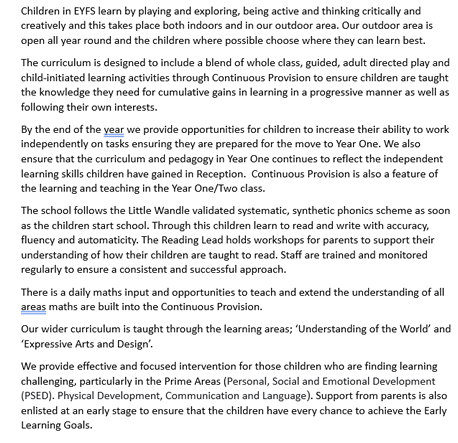
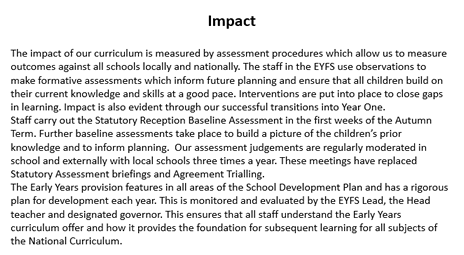
Click here to download a pdf version of our
Foundation Stage Curriculum Statement
Curriculum:
The children learn by finding out through play. We call
this ‘playful learning’. They talk about what they are
learning and have special book which follows their
journey through their first year in school.

Click here for the long term curriculum plan
Our academic year's curriculum plan is framed around 6 themes (one within each half term):
- Marvellous Me
- Light and Dark
- Toys
- Traditional Tales
- Our Wonderful World
- Going Places

Phonics Information for Parents
As from 2022, Wreningham uses the Little Wandle Phonics Letters and Sounds Revised as its systematic phonics system. Clicking on the link will take you to the Little Wandle parent's webpage, providing some helpful resources for you and your child.
EYFS Maths at Wreningham
In the Early years, we approach the teaching of maths through
practical activities and through ‘playful learning’. We use
Development Matters and the EYFS maths guidance to inform
our planning.
We refer to White Rose Maths Hub Scheme of Learning, NRICH and
NCETM early years to support our planning.
 Find our Early Years Maths Plan here
Find our Early Years Maths Plan here
There is an emphasis on developing mathematical language through
sorting, matching and comparing as well as exploring pattern and the
ability of subitising objects and images (for instance 5 and 10 frames
and dice patterns). Maths themes and ideas are taught four sessions a
week with a range of supporting activities provided through enhanced
provision.
Assessment is continuous through initial and final
assessments, although for summative assessment we refer to the
ELG and the exemplification materials.
The six key areas of learning in maths are:
Cardinality and Counting
Comparison
Composition
Pattern
Spatial Reasoning (Shape and Space)
Measures
For learning trajectories for each area, follow the link
by clicking the NCETM logo below:
Here's our topic wall about 'Under the Sea'
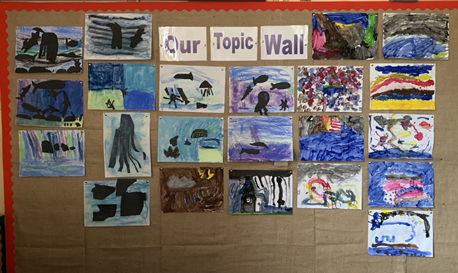
Here's our fantastic fish wall...
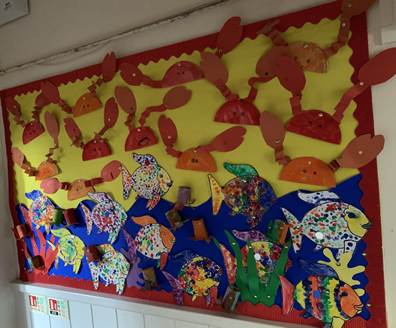
Here's our doubling ladybirds...

 Bears Everywhere
Bears Everywhere
We've all been on a bear hunt in class 1.
Have a look at our fantastic wall display.
Long wavy grass,
deep cold river
and thick oozy mud...
Swirling whirling snowstorm,
narrow gloomy cave...
